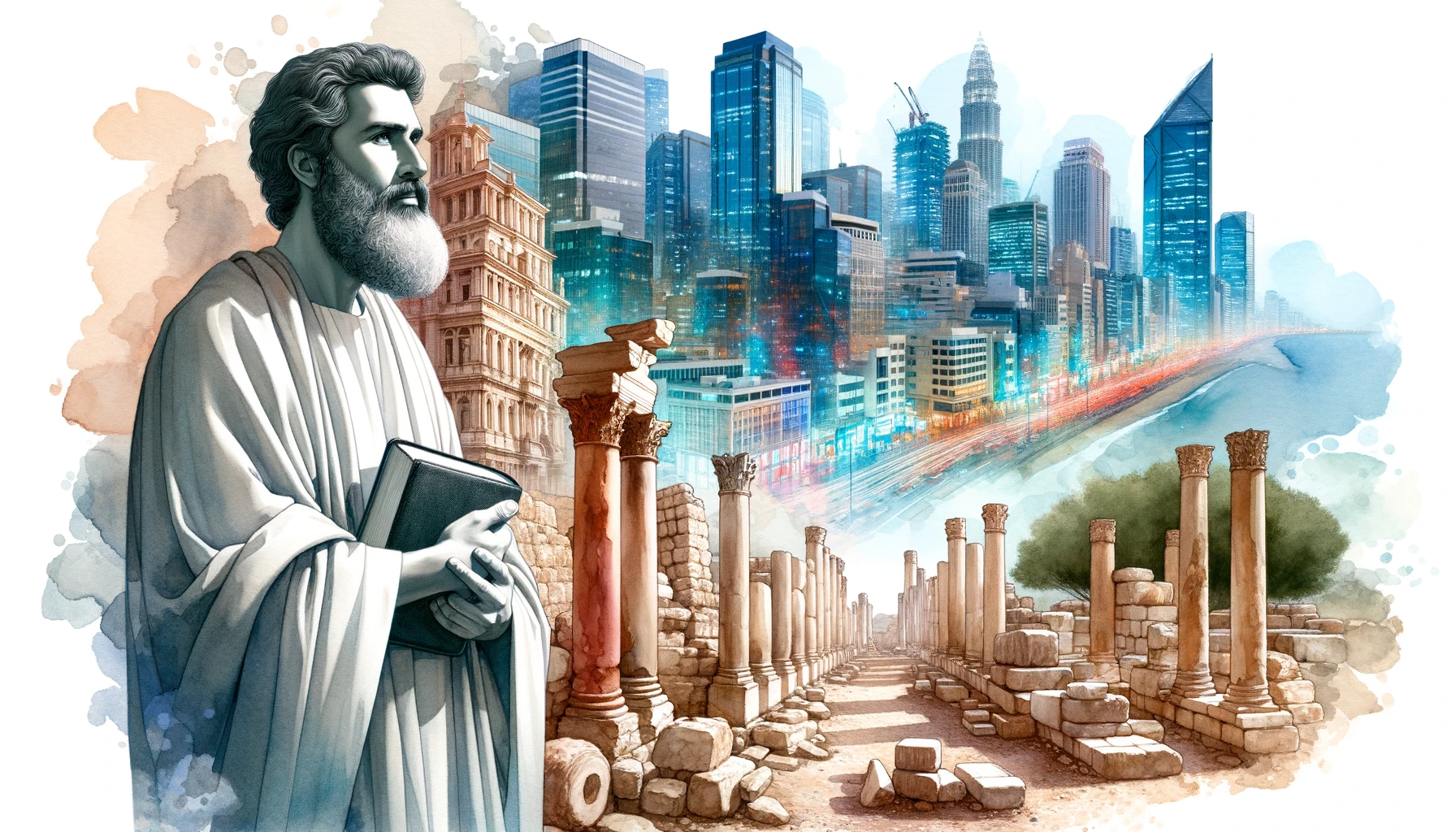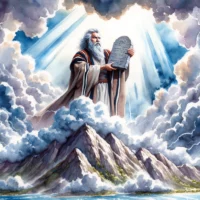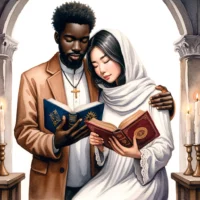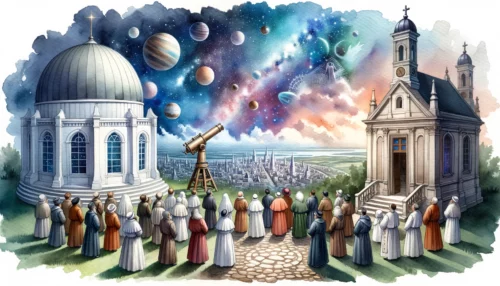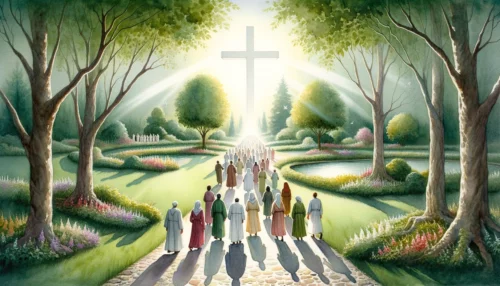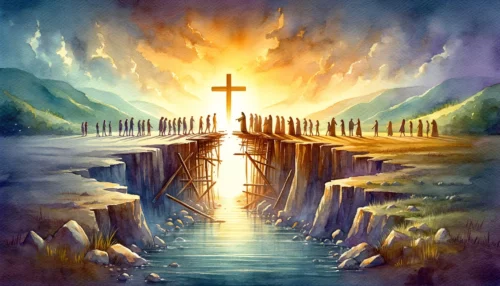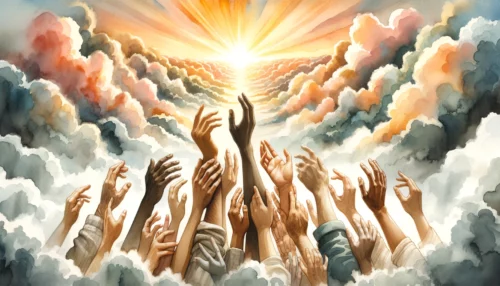From a Biblical perspective, the roles of apostles and prophets have been instrumental in the foundation and growth of the Christian faith. However, there is much debate over whether these roles continue to exist in our contemporary world. In this article, we’ll explore what the Bible has to say about the existence of apostles and prophets today and consider various viewpoints on the matter. Let’s dive into Scripture to unravel the mysteries behind these spiritual roles.
Understanding Apostles and Prophets in the Bible
To better understand the existence of apostles and prophets today, we must first establish what these roles entailed in the Bible. Let’s delve into the definitions and functions of apostles and prophets in the Scriptures.
Apostles
In the New Testament, the term “apostle” refers to a messenger or an envoy, someone who is sent out with a specific mission. The original twelve apostles, handpicked by Jesus himself, were tasked with spreading the Gospel and establishing the early Christian church. After Jesus’ resurrection and ascension, the apostles received the Holy Spirit, granting them spiritual gifts and authority to perform miracles, heal the sick, and even raise the dead. Some of the most well-known apostles are Peter, James, and John.
The Apostle Paul, though not one of the original twelve, is also considered an apostle due to his dramatic conversion and subsequent commitment to spreading the Gospel. In Ephesians 4:11-12, Paul writes, “So Christ himself gave the apostles, the prophets, the evangelists, the pastors and teachers, to equip his people for works of service, so that the body of Christ may be built up.”
Prophets
Prophets, on the other hand, were God’s spokespersons who delivered divinely inspired messages to the people. They were prominent in both the Old and New Testaments. Prophets often received visions, dreams, or direct revelations from God, which they then communicated to the people. They were responsible for warning, rebuking, and encouraging the people of Israel, and they played a crucial role in guiding them towards God’s will.
In the New Testament, the role of the prophet continued in the early Christian church. Prophets like Agabus (Acts 11:27-28; 21:10-11) and the daughters of Philip (Acts 21:8-9) were part of the early Christian community, providing guidance and direction for the followers of Jesus. The gift of prophecy is also mentioned in 1 Corinthians 12:28 and Romans 12:6, highlighting the importance of prophecy within the church.
Both apostles and prophets were essential in laying the foundation of the early church, as Paul mentions in Ephesians 2:19-20, “Consequently, you are no longer foreigners and strangers, but fellow citizens with God’s people and also members of his household, built on the foundation of the apostles and prophets, with Christ Jesus himself as the chief cornerstone.”
Biblical Evidence for the Continuation of Apostles and Prophets
The question of whether apostles and prophets still exist today has been a topic of debate among Christians for centuries. To address this, we need to examine the biblical evidence that supports or refutes their continuation in the present day.
Continuation of Spiritual Gifts
A key argument in favor of the existence of apostles and prophets today is the continuation of spiritual gifts. In 1 Corinthians 12, Paul lists various spiritual gifts, including apostleship and prophecy, which are given to believers by the Holy Spirit. These gifts are intended to build up and edify the church. Furthermore, in Ephesians 4:11-13, Paul states, “So Christ himself gave the apostles, the prophets, the evangelists, the pastors and teachers, to equip his people for works of service, so that the body of Christ may be built up until we all reach unity in the faith and in the knowledge of the Son of God and become mature, attaining to the whole measure of the fullness of Christ.” This passage suggests that these roles will continue until the church reaches unity and maturity.
The Great Commission
Another argument supporting the continuation of apostles and prophets comes from Jesus’ command to his disciples, known as the Great Commission. In Matthew 28:18-20, Jesus instructs his followers to “go and make disciples of all nations, baptizing them in the name of the Father and of the Son and of the Holy Spirit, and teaching them to obey everything I have commanded you.” This command extends beyond the original twelve apostles and can be seen as a directive for all believers to continue the work of spreading the Gospel and establishing the church.
The Role of Prophets in the Early Church
In the early church, prophets played a significant role in guiding and directing the followers of Jesus. For example, in Acts 13:1-3, the Holy Spirit directs the prophets and teachers in Antioch to set apart Barnabas and Paul for their missionary work. This event shows that the gift of prophecy was operational and vital in the early church. Furthermore, in 1 Corinthians 14:1, Paul encourages the believers to “follow the way of love and eagerly desire gifts of the Spirit, especially prophecy.” This exhortation implies that prophecy should be sought after and valued within the church.
The aforementioned biblical evidence demonstrates that the roles of apostles and prophets were critical in the early church and that there is a scriptural basis for the continuation of these roles today. While some may argue that these roles ceased after the apostolic age, the Bible suggests that they may persist until the church achieves its intended unity and maturity.
Modern-Day Apostles and Prophets: How Do They Manifest?
Given the biblical evidence supporting the continuation of apostles and prophets, it’s essential to consider how these roles might manifest in today’s world. While the nature of these roles may differ from their biblical counterparts, the underlying principles remain the same.
Modern-Day Apostles
Today’s apostles may not mirror the original twelve apostles, but they could still embody the apostolic calling in various ways. Some contemporary Christian leaders, for example, may be considered apostles due to their dedication to spreading the Gospel, planting churches, and providing spiritual guidance to communities worldwide. These modern apostles may also display spiritual gifts such as healing, discernment, and even performing miracles, which can be seen as evidence of the Holy Spirit working through them.
It’s important to note that the concept of modern-day apostles is not universally accepted among Christians. Some believe that the role of apostle was unique to the first-century church and that the term should only be used to describe the original twelve apostles and Paul. Despite this disagreement, many Christians recognize the value of apostolic ministry in the contemporary church.
Modern-Day Prophets
Similar to apostles, the role of prophets in today’s world may not be identical to their biblical counterparts. However, there are individuals who claim to possess the gift of prophecy and provide guidance, encouragement, or warnings to the church. These modern-day prophets may receive visions, dreams, or direct revelations from God, just as the biblical prophets did. The primary function of these individuals is to edify the church and bring believers closer to God.
In evaluating the legitimacy of modern-day prophets, Christians are encouraged to exercise discernment and test the spirits, as advised in 1 John 4:1, which says, “Dear friends, do not believe every spirit, but test the spirits to see whether they are from God, because many false prophets have gone out into the world.” A true prophet’s message should align with Scripture and glorify God.
While the roles of apostles and prophets may have evolved since biblical times, there is scriptural evidence supporting their continuation in today’s world. Modern-day apostles and prophets may serve to edify the church, spread the Gospel, and provide guidance to believers. As Christians, it’s crucial to exercise discernment when encountering individuals claiming these roles, ensuring their teachings and actions align with Scripture and the teachings of Jesus.
Embracing the Work of Apostles and Prophets Today
As we’ve explored the biblical evidence and discussed the manifestation of apostles and prophets in today’s world, it becomes clear that these roles continue to play a significant part in the spiritual growth of the church. With this in mind, here are three personal questions for you to consider:
- How do you view the roles of apostles and prophets in your own spiritual journey?
- Are there any modern-day apostles or prophets whose teachings have impacted your faith?
- How can you contribute to the mission of spreading the Gospel and edifying the church?
Remember, the work of apostles and prophets is to strengthen the church and bring believers closer to God. As we embrace their ministry in our lives, let us also seek to cultivate our own spiritual gifts and talents, so that we too may play a part in building up the body of Christ. Together, we can strive towards unity and spiritual maturity, fulfilling the purpose for which we have been called.




